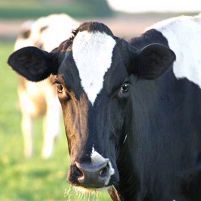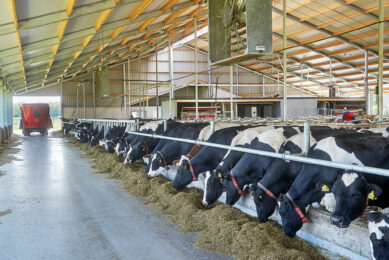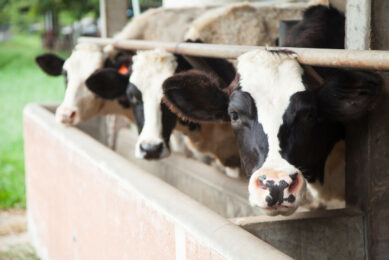10th Canadian BSE case is feed related

The mature dairy cow that became Canada’s 10th case of mad cow disease was probably infected by commercial feed that it received after weaning, says a report by the Canadian Food Inspection Agency released Wednesday.
Tests
confirmed on May 2 that the Holstein cow was infected with bovine spongiform
encephalopathy (BSE), more commonly known as mad cow disease. No part of the
carcass entered the human or animal food chain.
Contaminated
feed
The most likely cause was commercial feed, which the cow would have
eaten only during its first year that got cross-contaminated with prohibited
materials — rendered products from other ruminant animals. The most likely
source was cross-contamination of the heifer feed either at the feed mill or
during transportation.
The CFIA investigated 155 of the 66-month-old
cow’s herdmates, and their feed. Of those cattle, five of the animals have since
been slaughtered for unrelated reasons. Another 87 had already been slaughtered
-and of those, five had tested negative for BSE. There were 23 animals that
could not be traced, and the remaining 41 live animals have been quarantined and
will be killed in the next few months. Their carcasses will be incinerated at
the CFIA’s facility in Alberta, says Argue.
No failure of feed
ban
The feed ban implemented in 1997 (no longer allowing ruminant animal
products to be fed to other ruminants) is effectively keeping BSE out of
Canada’s food system. “The detection of BSE in a few animals born after the 1997
feed ban is not unexpected and does not indicate a failure of those measures,”
says the report. Additional regulations to enhance Canada’s feed ban were enacted
on July 12, 2007. The most important change is the removal of specified risk
materials — brains, eyes, tonsils and other select tissues from older cattle,
even bone dust generated when their spines are split open — from all animal
feeds, pet food and fertilizer.
Related website:
CFIA











